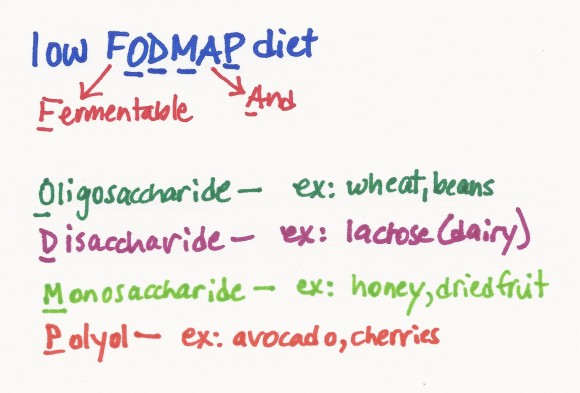Tag: Inflammation
The skinny on CBD
 It seems like everyone I know is taking CDB for something (insomnia, pain, anxiety, etc.) but what exactly is it and does it really work? And why is it so popular?
It seems like everyone I know is taking CDB for something (insomnia, pain, anxiety, etc.) but what exactly is it and does it really work? And why is it so popular?
CBD stands for cannabidiol and it is one of over 100 chemicals (called cannabinoids) that are extracted from the cannabis plant. Hemp and marijuana are different types of cannabis. Marijuana causes a “high” because it contains a lot of tetrahydrocannabinol (THC) but hemp has more CBD and very little THC. Most CBD you can buy comes from the hemp plant and is legal (in most US states) as long as it contains less that 0.3 percent THC.
Is the microbiome the key to health?
 Interest in the microbiome – those trillions of bugs (bacteria and other microorganisms) in your gut – is increasing and according to an article in the NY Times, drug companies are trying to get in on the action.
Interest in the microbiome – those trillions of bugs (bacteria and other microorganisms) in your gut – is increasing and according to an article in the NY Times, drug companies are trying to get in on the action.
As I’ve written before, these bugs may be important in the development of chronic disease leading to the possibility that you can “transplant” healthier bugs into someone with a disease. In fact, transferring the feces (poop) from one person to another has been shown to cure cases of Clostridioides difficile (C. diff) colitis (a life threatening infection of the gut caused by overuse of antibiotics). This is called fecal microbiota transplantation (FMT). Studies are ongoing to see if FMT can be used to treat inflammatory bowel disease (IBD), irritable bowel syndrome (IBS) and other chronic conditions. But there are a limited number of places doing FMT so people are doing their own transplants by harvesting the feces of a friend or family member and using a home blender (I’ll spare you any additional details but the DIY instructions are readily available online).
Food and long life
 There is so much in the news about food that it is hard to know what to eat. But there is reason to believe that food can play an important role in health. I’ve written about the connection between food and inflammation, the effect of food on the bacteria in the gut, how food can influence the course of a disease and the importance of telling stories about food.
There is so much in the news about food that it is hard to know what to eat. But there is reason to believe that food can play an important role in health. I’ve written about the connection between food and inflammation, the effect of food on the bacteria in the gut, how food can influence the course of a disease and the importance of telling stories about food.
Recent scientific papers in medical journals have suggested that spicy food is associated with a lower risk of death and that a Southern diet is associated with a greater risk of heart disease and stroke.
However, scientific studies about diet are difficult to interpret because they often depend on people keeping track of what they eat. It is also hard to know if other factors are influencing the results, which is why both of these studies can only conclude an “association” between the particular diet and the outcome and not a “cause”.
FODMAPs
 A few weeks ago, I was asked if I knew anything about the low FODMAP diet as a treatment for inflammatory bowel disease (IBD). I was sure this was yet another fad diet (or that the name was misspelled – seemed like FOD should be FOOD, right?) .
A few weeks ago, I was asked if I knew anything about the low FODMAP diet as a treatment for inflammatory bowel disease (IBD). I was sure this was yet another fad diet (or that the name was misspelled – seemed like FOD should be FOOD, right?) .
Imagine my surprise when I found detailed information about the diet and its use in treating irritable bowel syndrome (IBS) on the Stanford Health Care website. Irritable bowel syndrome is a chronic condition that causes abdominal pain, bloating, gas, diarrhea and other symptoms in the gut. It turns out that FODMAP is an acronym for Fermentable Oligosaccharide, Disaccharide, Monosaccharides and Polyol. All of these substances are found in certain foods and are types of carbohydrates. Researchers in Australia found that these carbohydrates are not well absorbed by the small intestine in people with IBS. As a result, the substances stay in the gut rather than being used by the body and they pull water into the gut. The FODMAPs can also be fermented by the bacteria in the gut which produces gas. All of this can lead to a bloating feeling, pain and other symptoms.
The dark side of bacteria
Bacteria are our friends…but not all the time.
While I believe that we need to keep the bacteria in our bodies happy and that the improved cleanliness of modern life may be causing problems, there is also no question that bacteria are our enemies as well. You don’t have to look very far to see examples of how bacteria can cause serious illness or even death – meningococal meningitis, pneumococcal pneumonia, salmonella and tuberculosis to name a few. In most cases, antibiotics are required to treat these infections (or vaccines to prevent the infections).
Loving your bacteria
 When my kids were little, I used to joke that bacteria are our friends, so I didn’t worry much when their pacifiers fell on the ground. As an infectious diseases specialist I had also seen the harmful effects of using too many antibiotics – emergence of bad bacteria like MRSA (methicillin resistant Staphylococcus aureus) and development of diseases due to killing off of good bacteria (like Clostridium difficile colitis, a serious inflammation of the gut caused by antibiotics). So I also tried to avoid giving them antibiotics. New research suggests that bacteria may be more helpful than we ever knew.
When my kids were little, I used to joke that bacteria are our friends, so I didn’t worry much when their pacifiers fell on the ground. As an infectious diseases specialist I had also seen the harmful effects of using too many antibiotics – emergence of bad bacteria like MRSA (methicillin resistant Staphylococcus aureus) and development of diseases due to killing off of good bacteria (like Clostridium difficile colitis, a serious inflammation of the gut caused by antibiotics). So I also tried to avoid giving them antibiotics. New research suggests that bacteria may be more helpful than we ever knew.
Does food cause inflammation?
I am fascinated by food – what makes us eat the food we eat and how it affects our health. I’m especially interested when there is evidence to support the ideas.
As the American diet has changed in the past few decades, we have been gaining weight. It is also true that we are seeing more diseases – especially those that have an inflammatory component. Inflammation is when the body responds to things that shouldn’t be there – like an infection or a chemical – and the body sends cells to the area to fight them off. This can lead to pain and swelling, among other things. Some diseases caused by inflammation have “itis” at the end – arthritis, colitis, bronchitis, etc.
Is it possible that the food we eat is causing some of these diseases that are due to inflammation?
